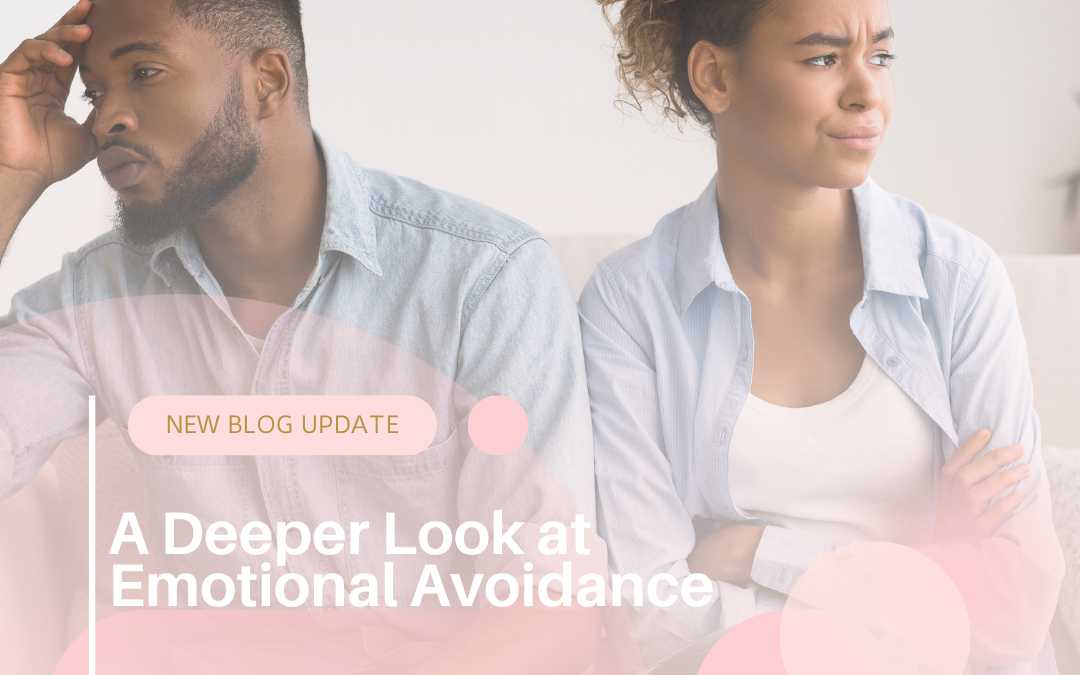“What you are shouts so loudly in my ears that I cannot hear what you say.” — Ralph Waldo Emerson
Silence is often mistaken for peace. In conversations, it can masquerade as calm. In relationships, it may be labeled as respect. But silence is rarely empty. More often than not, silence is packed with emotion, memory, and meaning — especially when it’s habitual.
In therapy, we learn to listen not just to the words people speak, but to the words they won’t. The topics they skip. The pauses that stretch too long. The way they brush off pain with a laugh. These absences are not accidents. They’re part of a deeper psychological language — one that reveals just as much, if not more, than speech itself.
Let’s unpack the psychology of avoidance, and how our silence may be trying to tell us something important.
Avoidance as Emotional Armor
Humans are meaning-making creatures, but we’re also pain-avoiding creatures. When a subject, feeling, or memory feels threatening, our mind may choose to “go quiet” as a survival tactic.
This avoidance can take many forms:
-
Changing the subject when emotions surface.
-
Withdrawing during conflict.
-
Not expressing needs for fear of being a burden.
-
Smiling through pain to keep the peace.
On the outside, this silence might look like strength. But on the inside, it’s often rooted in fear — fear of judgment, abandonment, or emotional overwhelm. Avoidance, in this way, becomes a form of emotional self-protection.
Where Silence Begins: The Family System
Many of our silences begin long before we become aware of them. Children raised in emotionally dismissive or chaotic homes often learn early that:
-
“It’s not safe to cry.”
-
“No one wants to hear what I think.”
-
“If I speak up, I’ll be punished or ignored.”
So, they adapt. They mute their emotional world in exchange for safety, connection, or survival. But what works in childhood often becomes a barrier in adulthood — especially in intimate relationships and self-expression.
Understanding these origins isn’t about blaming the past, but about reclaiming agency in the present.
Silence in Relationships: The Unspoken Language
In close relationships, silence can become a stand-in for unresolved tension. Think of:
-
The couple that never discusses intimacy but both feel the distance.
-
The friend who “ghosts” instead of saying they’re hurt.
-
The family member who never apologizes, hoping time will just erase the rupture.
Avoiding hard conversations can preserve temporary comfort but often builds long-term disconnection. When silence becomes the default, it sends messages like:
-
“You’re not safe enough to be real with.”
-
“I’d rather you guess how I feel than risk vulnerability.”
-
“This relationship can’t hold conflict.”
Of course, silence doesn’t always mean avoidance. But when silence replaces communication, it can quietly erode trust and emotional intimacy.
What Are You Not Saying?
If you’re someone who finds it hard to speak up — whether in therapy, relationships, or even your own journaling — consider asking yourself:
-
What am I afraid might happen if I tell the truth?
-
Where did I learn that silence keeps me safe?
-
What parts of me remain unspoken, even to myself?
These aren’t easy questions. But they’re powerful. When we start to explore the things we avoid, we begin a process of reclaiming voice, power, and presence.
Finding Voice Through Healing
Therapy provides a safe space to explore silence — not to force words, but to understand what’s beneath them. Through this process, clients often discover that:
-
Their silence held grief, not indifference.
-
Their avoidance was fear, not apathy.
-
Their distance was self-protection, not cruelty.
Naming these truths aloud, even in small ways, becomes a healing act. It invites integration where fragmentation lived.
Final Thoughts
Silence is not the enemy. Sometimes, it’s wise. Sometimes, it’s necessary. But when silence is chronic — when it becomes a pattern of disconnection from self or others — it deserves attention.
Because what we avoid doesn’t disappear. It waits — quietly — to be heard.
And when we finally give voice to the things we’ve avoided, we make space for freedom, intimacy, and transformation.
If you find yourself silencing your needs, avoiding your emotions, or stuck in the cycle of ‘keeping the peace,’ you’re not alone. Therapy can help you reconnect with your voice and rebuild the safety to use it.
We’re here when you’re ready.


Recent Comments